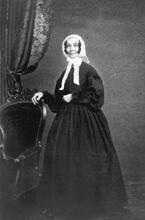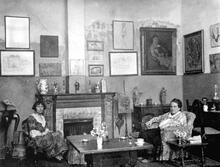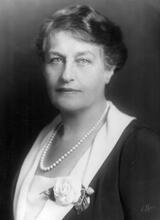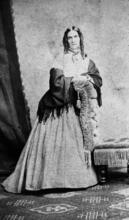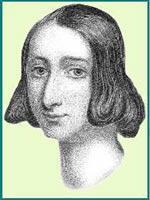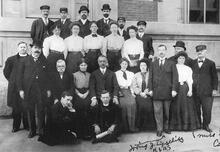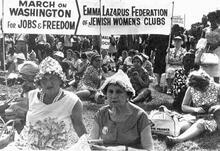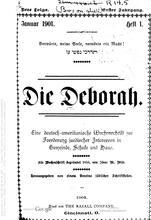Rosa Mordecai
In the 1850s, Rosa Mordecai attended the famed Sunday school that her great-aunt Rebecca Gratz had created, which was the first to offer American Jewish children an education on Jewish history and religion in English. At the time, most Jewish religious education took place in yeshivot and was for boys only. As an adult, Mordecai and two of her sisters created a private school for girls in Philadelphia, which they ran for forty years. She wrote a vivid account in 1897 of her experience at Rebecca Gratz’s school, which was reprinted several times and helped preserve the history of what Gratz had accomplished.
Article
Rosa Mordecai was born into an important nineteenth-century Jewish American family in Washington, D.C., on February 14, 1839. Little detail is known about her life. One of her biographers noted in 1912 that “Miss Mordecai says of herself ... she is simply Rose Mordecai, ‘without either romance or mystery, but one who loves her fellow men.’” In his introduction to a 1953 republication of Mordecai’s recollections of the first Hebrew Sunday school in America, Joshua Bloch said she “was one of the last representatives of that group of pious gentlewomen, who in their days were responsible for the religious training of Jewish youth and who left an indelible impression upon the mind and spirit of all who had come to know them.”
Mordecai was a scion of a distinguished family of merchants, physicians, educators, soldiers, philanthropists, and reformers. Faith in education as the path toward equality of opportunity was instilled in Rosa Mordecai by her father, Alfred Mordecai, a distinguished educator, businessman, the first Jewish graduate of West Point, and the foremost expert on munitions in antebellum America. Alfred was also the brother of Rachel Mordecai Lazarus, who taught at the school that Rosa helped found. Rosa’s belief in the importance of education was also imparted by her mother, Sara Ann (Hays) Mordecai, niece of Rebecca Gratz, the founder of the first Hebrew Sunday school in America.
From her mother, Rosa Mordecai inherited her faith in Judaism. Rosa Mordecai’s contributions to the character of nineteenth-century Judaism were evident in a public and private life dedicated to the idea and practice of merging Jewish American women’s spiritual and religious lives within the temporal and secular world of nineteenth-century America. With her sisters, Laura and Miriam, Rosa established and operated a private school in Philadelphia for girls, which they ran for forty years. No doubt her efforts in this direction were a legacy of Rosa’s paternal grandfather, Jacob Mordecai, who established a seminary for “young ladies” in Warrenton, North Carolina, in 1809. In its day, this seminary was considered one of the better institutions of instruction in the South, drawing its students from many prominent southern families.
Mordecai’s contemporary account of the first Hebrew Sunday school in America remains as the most thorough record of religious education of Jewish children in the antebellum United States. This Sunday school, established in Philadelphia in 1838, was founded by Mordecai’s maternal great-aunt, Rebecca Gratz. According to Bloch, Mordecai’s account of this school “enrich[es] our knowledge of the personality of Rebecca Gratz ... and of the remarkable role she played in early efforts to strengthen the position of Judaism and to give meaning to its teaching and practices in this country.”
A prominent citizen of Philadelphia, Mordecai “contributed, in various ways, to the improvement of civic life.” Rosa Mordecai died in Washington, D.C., on October 31, 1936. She is buried in Philadelphia in the cemetery of the Ritual bathMikveh Israel Congregation.
AJYB 39:595.
Bloch, Joshua. “Rosa Mordecai’s Recollections of the First Hebrew Sunday School.” PAJHS 42, no. 4 (June 1953): 397–406.
DAB.
JE.
Logan, Mary S. The Part Taken by Women in American History (1912. Reprinted 1972).
Marcus, Jacob Rader. Memoirs of American Jews, 1775–1865 (1955–1956), and United States Jewry, 1776–1985. Vol. 1 (1989).

